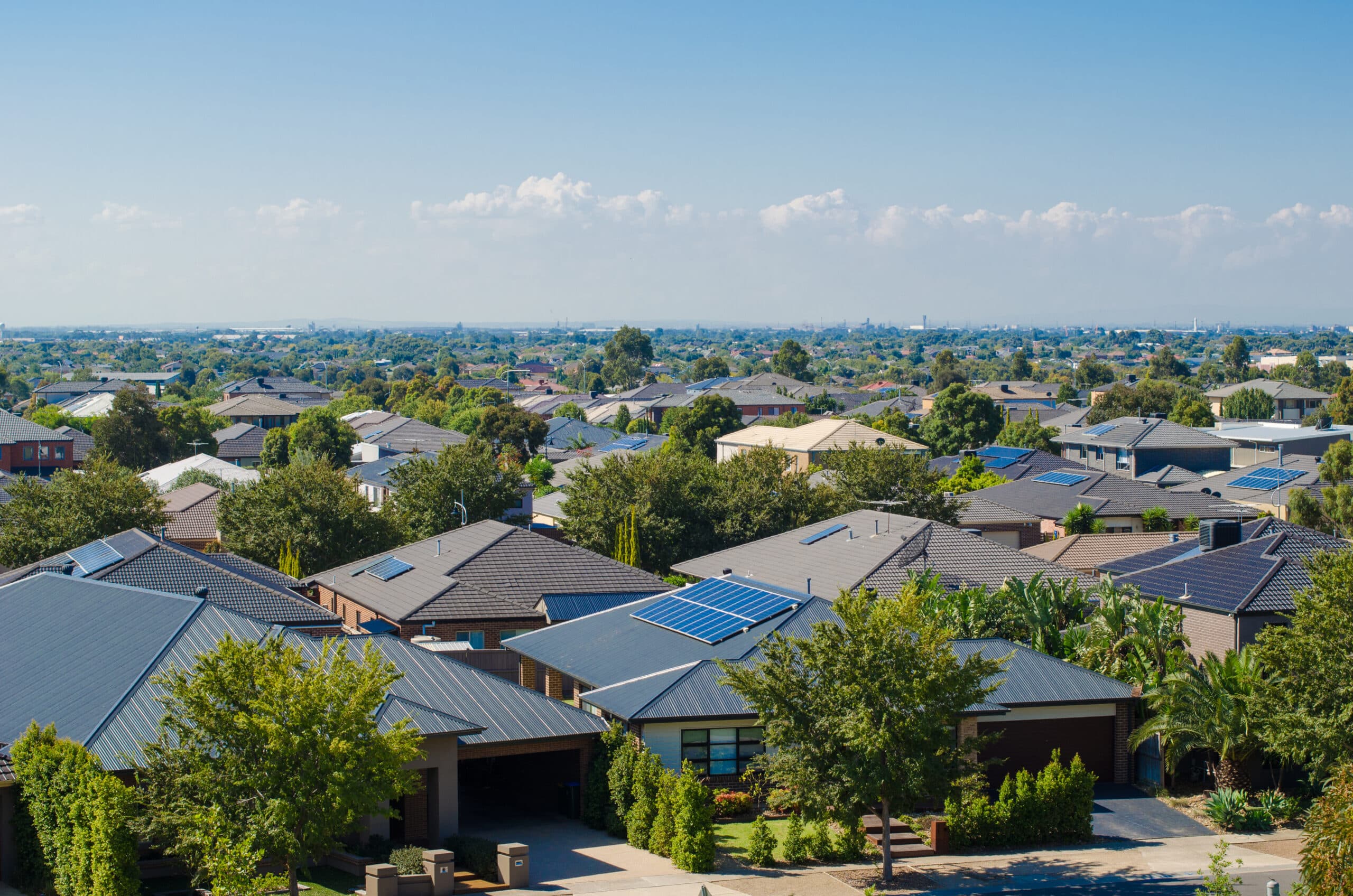We’re for great cities, strong economies, and sustainable communities, now and in the future.
Through our national and Division priorities, we champion a strong and thriving property industry by advocating for and unlocking opportunities that build prosperity, create jobs, and shape the future of our cities, towns and communities. We believe that with the right reforms, property can help deliver the economic gains that Australia is looking for.
Our six key national priorities, help guide our areas of focus and create transparency, participation and tangible outcomes for our members. Priorities are endorsed by the Board and developed in consultation with Division Councils, Committees, stakeholder roundtables and management.
Our advocacy priorities are guided by our commitment to positive social impact, diversity, and meaningful engagement with First Nations peoples.
National Priorities

Housing affordability
Creating a strong and stable pipeline of new housing supply to take the pressure off prices.
Because Australia's experiencing a housing affordability crisis, and we believe everyone deserves access to quality housing and choice to suit their stage of life.

Cities & Infrastructure
Strong infrastructure pipelines and clear city growth policies to make our cities more productive and better connect communities with the jobs and services they need.
Because we know that cities are the engines of our economy, and create the greatest concentration of jobs, education and social infrastructure for people.

Fairer taxes
Growing the economy by overhauling the tax system to reduce the burden on property and improve housing affordability.
Because the current system creates barriers to growth and we believe that with the right reforms, property can help deliver the economic gains that Australia is looking for.

Better planning
Streamlining planning rules and assessment processes to reduce cost and delays, and ensuring clear long-term plans are in place for our cities, suburbs and CBDs.
Because tomorrow's great cities require best practice planning today. We're leading the discussion to help generate the most sustainable, liveable and high-quality places for our children and grandchildren.

Leading sustainability
Promoting smart policies to: improve the uptake of energy efficiency initiatives and clean energy, and incentivise best practice development and community creation.
Because with surging global energy prices and the impact of climate change, if we can make buildings more energy efficient, we'll reduce emissions faster and with greater ROI than many other options, given residential and commercial buildings account for a quarter of Australia's emissions.

Less red tape
Targeting red tape reduction to lift productivity, encourage innovation and reduce the time and cost of doing business.
Because with 13 per cent of Australia's GDP and 1 in 4 jobs generated by the property industry, encouraging investment in the sector is critical to Australia's ongoing prosperity and quality of life.
Division Priorities
Division priorities are the focus areas for each state or territory, as well as our four specialist Divisions: Capital Markets, Residential Development, Retirement Living and Student Accommodation.
Division priorities are established by each Division Council, in consultation with Industry Committees and stakeholder roundtables, and endorsed by the National Board.
1. Turbocharge planning reform
Keeping our foot on the accelerator to build on 2023 progress and ensure promised planning reforms are occurring from the local level upwards.
2. Reduce fees, taxes and charges
To boost economic growth, create jobs and ensure the Treasurer’s stamp duty reform agenda delivers a net benefit for the economy, the community and the industry.
3. Address the supply, diversity and affordability of housing
Coming out of COVID by working collaboratively towards a good growth agenda.
1. Achieving planning system improvements
Our focus is on championing the Commissioner for Better Regulation’s recommendations for planning system reform, which will support greater efficiency and capacity.
2.Boosting housing supply and affordability
Victoria is currently not delivering enough new homes to meet the needs of a growing population – we must do more to unlock land for housing and support infill development in Melbourne and our major regional cities, especially adjacent to transport infrastructure.
3.Reviewing Victorian property taxes
Property is responsible for 59 per cent of Victoria’s annual taxation revenue. It’s time to formally review the impact of taxes on housing affordability and the cost of doing business.
4.Unlocking industrial land supply
Melbourne’s traditional competitive advantage has been eroded in recent years by a limited land supply pipeline for new development which is pushing up rents – unlocking supply will support jobs and the wider economy.
5.Ongoing CBD renewal
Central Melbourne has bounced back strongly from the pandemic but there needs to be continued support for the ‘9 to 5’ economy to ensure the CBD’s attraction stays strong.
1.There is readily available housing for all Queenslanders
Working to ensure that every Queenslander has access to safe, affordable, fit-for-purpose housing.
2.Our city centres continue to thrive as economic and social hubs
As Queensland prepares to take the world stage, the focus on accessible, well connected, inclusive precincts across the state must be at the forefront.
3.Queensland’s regulatory settings encourage and facilitate job-creating investment
Advocating for a cost-effective regulatory environment that incentivise property development in Queensland which allows the industry to continue creating jobs, driving growth and developing communities.
- Supercharge housing supply and affordability through effective policies that deliver high-quality infill outcomes, seniors living and student accommodations options.
- Improve the delivery of the built environment by advocating for efficient, timely, and professional processes for design, environmental assessments and approvals, including ensuring fees, charges and processes are appropriate and not detrimental to project feasibility.
- Positioning Western Australia as a prime opportunity destination by positively promoting the WA property industry and focusing on economic diversification, workforce attraction and retention policies, and leveraging time zone adjacency.
- Fostering collaboration between industry and all levels of government to create thriving cities and precincts. Emphasising planning and governance tools, seamless transport connectivity, catalytic infrastructure delivery, and facilitating pathways for precincts and market-led proposals.
- Empowering the property industry to assist the transition to net-zero, providing resources and support for sustainable practices and environmental leadership.
1. Simple, fair, competitive taxation
It is clear there is a need for urgent, fundamental tax reform in South Australia, and nationally. Reforms to property-based taxes are a critical part of this process. Inefficient taxes act as a handbrake on the economy – impeding transactions, stifling activity, inhibiting job growth and constricting productivity. The Property Council will continue to fight for complete stamp duty abolition on all types of property transactions and for a more competitive land tax regime in South Australia.
2. A modernised planning system
The Property Council is fighting for a modern, depoliticised and efficient planning system in South Australia that creates investor certainty and drives economic growth. Our vision for planning is a system that is user friendly, acts as a development enabler and has a world-class reputation.
3. Local government efficiencies
The commercial property sector pays more than its fair share when it comes to local government taxes. A pillar of the Property Council’s advocacy in South Australia is around ensuring transparency, value for money and efficiency gains at the local government level.
The Property industry is currently being held back by a complex policy environment, high levels of regulation, and increasing costs, and risks that prevent it from reaching its full potential.
Economic growth and progress can only occur if these challenges are addressed with meaningful reform and a policy approach that facilitates investment and delivers outcomes Tasmanians can be proud of.
The Property Council is calling for the Tasmanian Government to focus on five key areas of reform that will ensure Tasmania unlocks its full potential:
- Addressing affordability
- Enabling more rental accommodation
- Planning for our future
- Promoting productivity and investment
- Skills training and workforce needs.
1. Build on our strengths to get the population we need to secure our future
- Make Canberra the lifestyle destination of choice
- Create a diverse and inclusive community to enrich, and enliven our city.
2. Create the homes Canberrans need to thrive
- Boosting the supply of housing, now and for the future
- Housing choice and affordability where it is needed.
3. Urban renewal the delivers for business, community and our city
- Planning that delivers outcomes for people
- Creating places and spaces that make our city great.
1. Secure policies that reverse downturn
Continue to push for policies to reverse the economic downturn that has followed the oil and gas booms.
2. Fighting against property tax increases
Ensure the Northern Territory remains a competitive place to invest, own and manage property by opposing the introduction of unbalanced property related taxes.
3. A new plan for Darwin city centre
Advocate the development of a policy that will address fragmentation across all Central Business
Districts.
Supply – Working with governments across the country to meet the 67,000 homes that the retirement living industry requires to be built between now and 2030 to meet existing levels of demand from older Australians and the benefits this would have for the broader housing market.
Care – Making stakeholders aware of the potential of the retirement living sector to ease the growing burden on the country’s struggling aged care system.
Education – Increasing awareness of political stakeholders to the benefits of retirement living for older Australians and the difference between aged care and retirement living.
Balance – Advocating for balanced legislation which keeps in mind all stakeholders, including residents, operators, and government.
1. Open capital flows
Champion strong and transparent flows of capital from offshore and domestically into the property industry.
2. Property as an investment class
Ensure regulatory frameworks do not unfairly discriminate against property as an investment class – whether the investment is held directly or through a listed or unlisted property fund.
3. Tax flow through for property trusts
Maintain tax flow through treatment for passive investments and preserve the use of stapled structures for property funds.
4. A competitive investment framework for property
Champion a globally competitive framework for collective investment in property that attracts patient, long term capital and expands the types of eligible investments for managed investment trusts (MITs) and collective investment vehicles (CIVs).
5. Fair and efficient property taxes
Push for fairer and more efficient property taxes and support the drive for economic growth through a whole-of-system review of Australia’s tax settings.
6. Reduce regulatory burden for businesses
A continuous reform agenda to strip back unnecessary regulation and red tape that act as a needless barrier to investment in property, spanning across accounting standards, corporate governance frameworks, corporate regulations, foreign investment framework, income tax and GST.
7. Access to finance
Promote initiatives that boost access to deeper and more liquid debt markets.
Our focus is:
Supply – Work with governments and the sector to increase the supply of PBSA in Australia, unlocking the rental market and providing safe and professionally managed housing options for students.
Growth – Support the purpose-built student accommodation sector by removing barriers to growth like foreign-investor taxes and charges.
Education – Increase awareness about the important economic, social and wellbeing impacts of the sector amongst policy makers, investors, educational institutions and the public.
Unity – Work with the entire education supply chain to strengthen relationships between institutions, accommodation providers and all levels of government.
Consistency – Provide consistent regulatory frameworks for PBSA providers across Australia – ensuring an even playing field that encourages investment regardless of jurisdiction.
